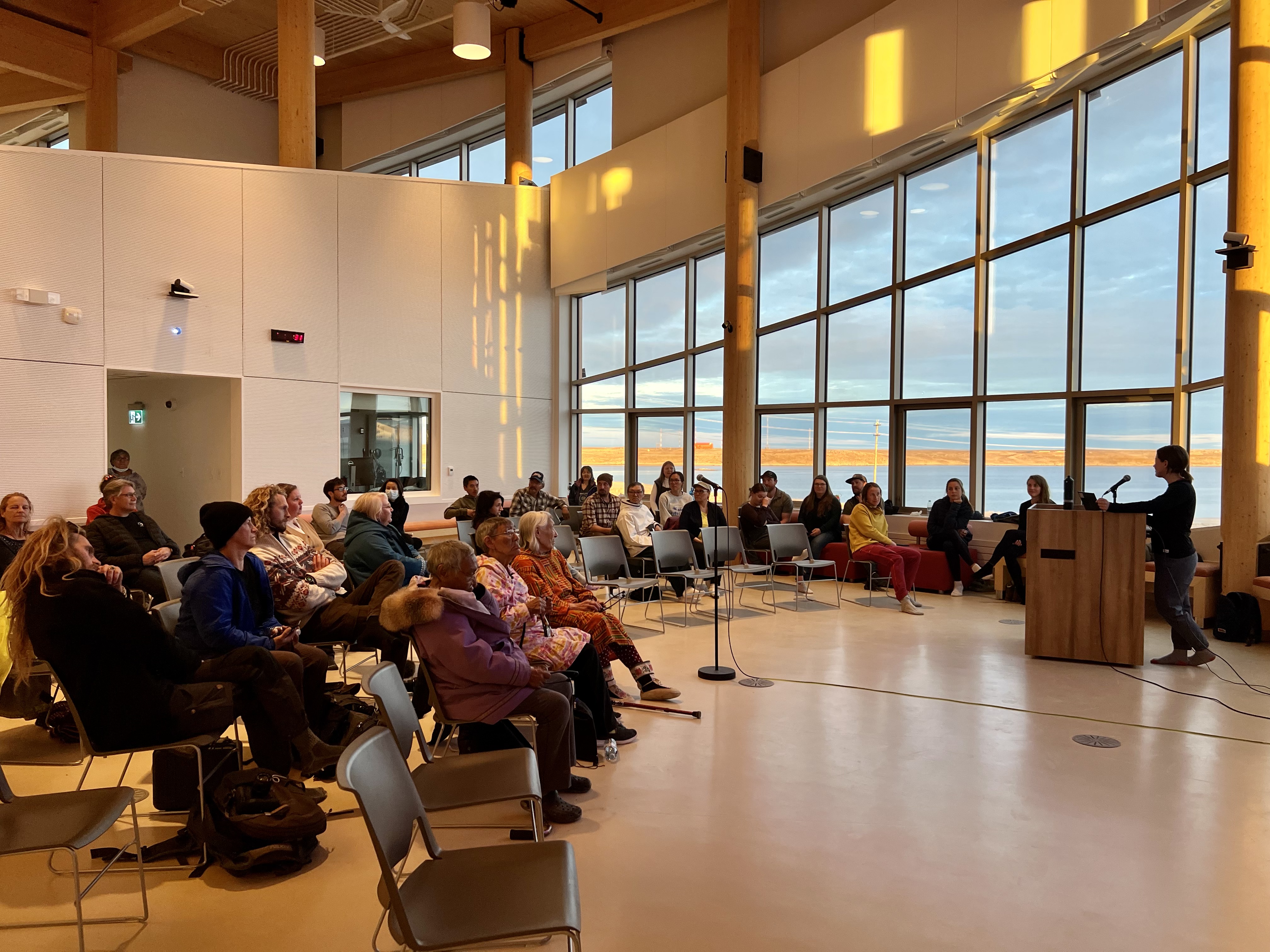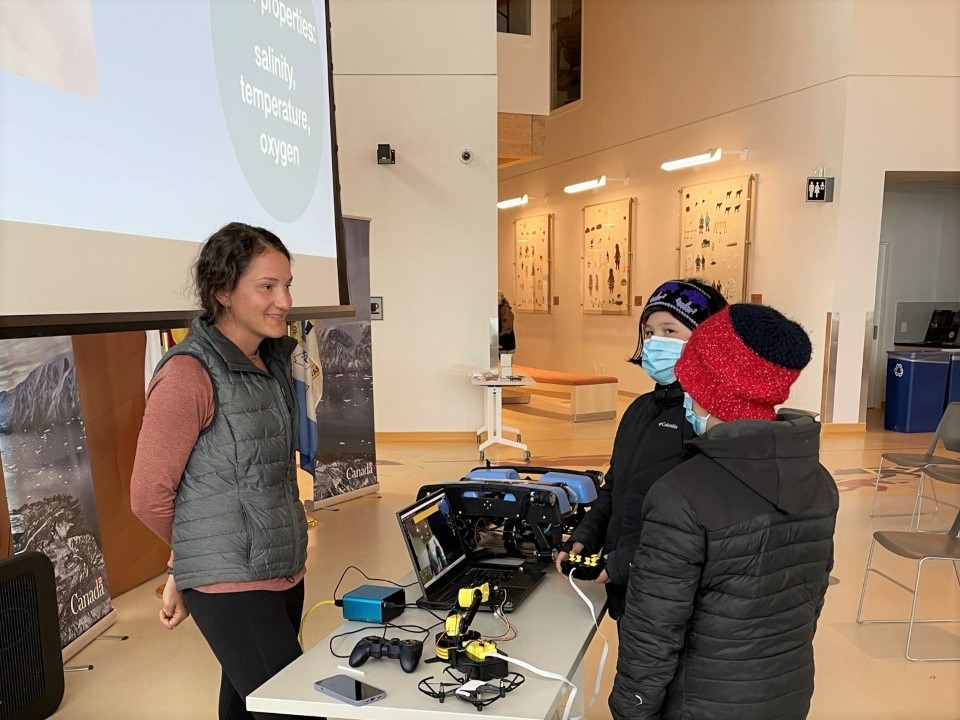Canadian High Arctic Research Station (CHARS) speaker series 2022
The 2022 CHARS speaker series gave Cambridge Bay residents a chance to hear from the scientists themselves about the latest news on the research in and around the community. The series featured engaging presentations on a variety of topics:
- Fisheries and Oceans Canada fish biologist Les Harris, who is well known in Cambridge Bay for his collaboration with the community, spoke on his team's research on migratory arctic char. Cambridge Bay resident Richard Ekpakohak talked about his years of experience collaborating with scientists.
- The Canadian Museum of Nature diving team presented their work on Arctic kelp forests and seaweed biodiversity, and displayed live organisms collected earlier the same day.

Trent University biologist Jim Schaefer spoke on how arctic plants are responding to climate change, evidence gathered from his long-term research on tundra vegetation and snow cover at Ekalluktok, near Cambridge Bay.

Scientists from the Woods Hole Oceanographic Institution showed how they use remotely operated vehicles like drones and robots mounted on kayaks to explore the arctic marine environment.
- A terrestrial ecosystem research team from the University of Moncton shared insights on changes affecting tundra birds, caribou, predators and prey.
- Speakers from Texas A&M University, Lehigh University, and Alaska's Toolik Research Station spoke about arctic peat and the important global role Canadian peatlands play as a carbon sink against climate change.
- POLAR biologist Danielle Nowosad gave a presentation on her freshwater invertebrate research. She is part of a team that uses DNA barcoding to understand the biodiversity of ponds, rivers, and lakes near Cambridge Bay.
POLAR looks forward to more fascinating presentations in next year’s CHARS speaker series!
Polar Knowledge Canada
For media inquiries, contact:
communications@polar-polaire.gc.ca